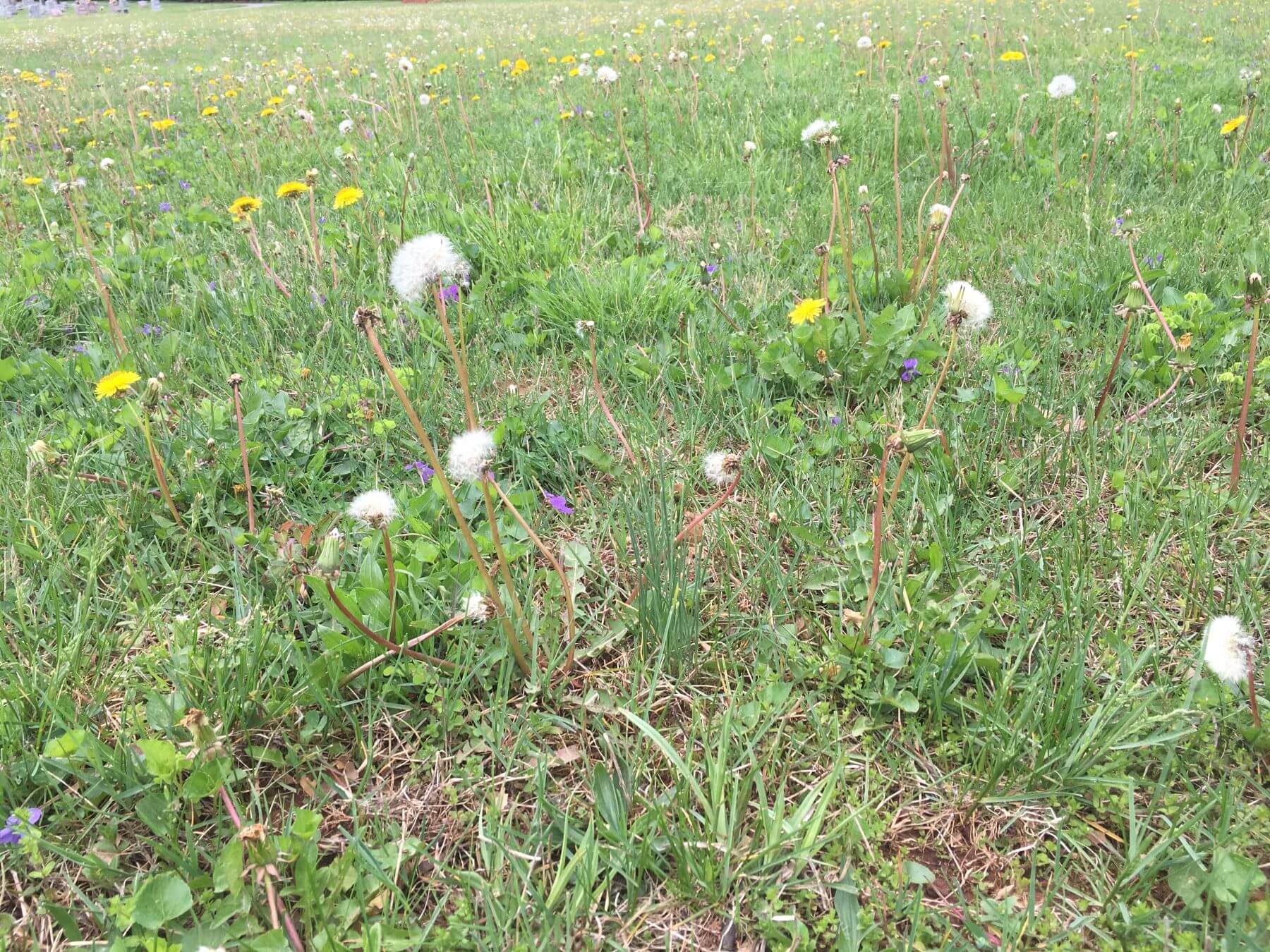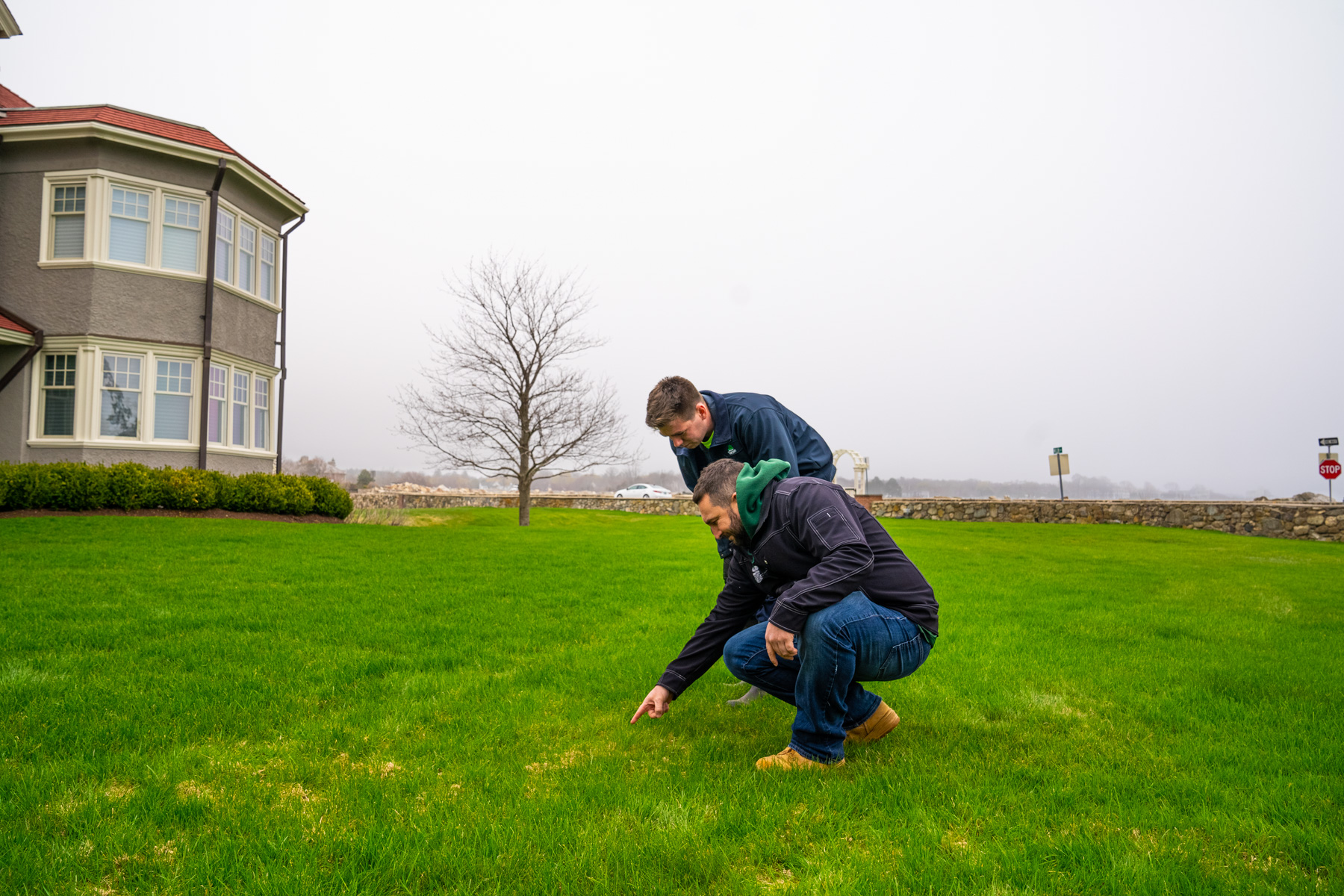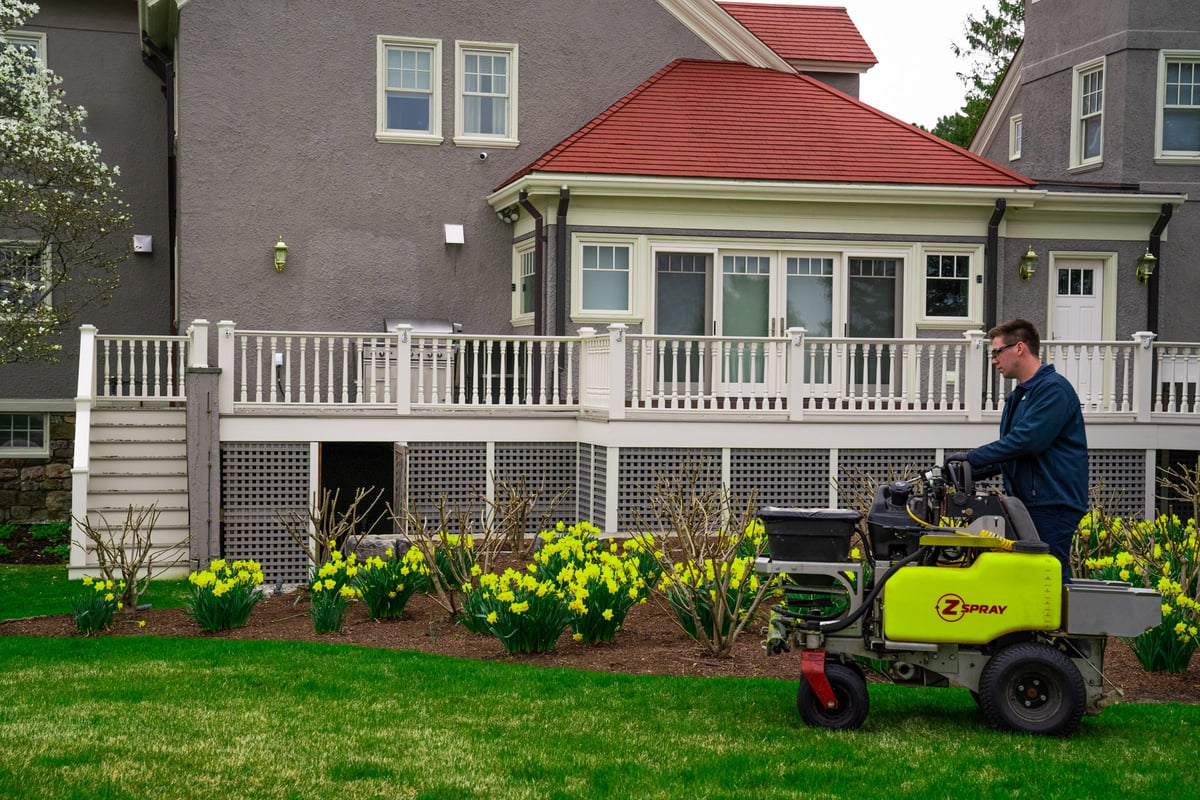


There are a lot of pests that can be frustrating for a lot of different reasons. But grass-eating bugs are particularly stressful since they can be highly destructive to your lawn. Grass-eating insects might be lurking in your lawn without you even realizing it.
While you’re outside simply trying to enjoy a good time with friends and family, they might be feasting beneath your feet, and destroying your turf health.
In this article, we’ll talk about what insects eat grass, how you can know if you might have them, and what to do about it. In New England states like Massachusetts, New Hampshire, and Maine, the most common grass-eating insects include:
1. Grubs
2. Chinch Bugs
3. Cutworms
4. Armyworms
5. Sod Webworms
We’ll talk about all five of these.
Here are five grass-eating pests you may encounter on your lawn and what to do about them.
This first one might be misleading as grubs eat the roots of the grass, not the grass itself. These subsurface pests can be a major problem. That’s because as grubs feast on your grass roots, they can quickly destroy large areas of turf. After all, your grass can’t survive without its roots.

“Grub” is simply the name for the larval form of the beetle. Grubs are caterpillar-like, c-shaped creatures that are born in the soil. There are three types that we tend to deal with in our area:
In New England, beetles typically lay their eggs in June or July, and then larvae (grubs) are born and start feeding sometime from early July through mid-Fall. Lawn grub control should be applied in time to prevent grubs from feeding. At Seacoast Turf Care, we include pollinator-safe grub control in all three of our lawn care programs.
Chinch bugs are small pests that can kill your lawn by sucking the sap out of it. As they do this they also release a toxin that can cause the grass to turn yellow and wilt. They tend to thrive during the summer when the lawn might already be struggling from drought-stress.

Chinch bugs tend to live in areas of thatch, which is a dead-layer that sometimes forms between the soil and the grass.
Another grass-eating bug is the cutworm, which is the caterpillar stage of many moth varieties. Cutworms get their name because they “cut down” many young grass plants. These pests also like to hang out and hide in layers of thatch. When they do come out to eat, they will feed on the grass blade close to the soil.

Cutworms will eat many types of plants. When they feed on grass plants, you might notice damage as circular brown patches in areas where they’ve feasted. As with any lawn pest, a couple cutworms isn’t a huge deal but if you have many, it can lead to significant damage.
Armyworms get their name because of the fact that they tend to travel in large groups. This is also what makes them so problematic. If they invade your lawn in large numbers, they can be destructive in a relatively short amount of time.

Armyworms are actually caterpillars and they tend to move quickly through lawns, eating as they go. They aren’t exactly small, so you might spot them. But sometimes an influx of birds on the lawn is a sign that you’ve got a problem with bugs eating grass. That’s because lawn pests tend to be a food source for many types of birds.
Sod webworms, also sometimes called “lawn moths,” are lawn pests that love to feast on grass. Most of the feasting tends to occur at night as these pests will hide during the day. The worst sod webworm damage tends to show up in July and August. During this time, larvae chew off leaves and stems just above the crown. As this pest grows, they start eating more, and the damage may become more severe.

While you have good reason to be worried about bugs eating grass, the good news is that you may go many years without ever seeing these pests. You may go your whole lifetime never seeing some of these pests.
If you do end up having a problem with grass eating bugs, then swift action will be important. This is one of the key benefits of being partnered with a lawn care professional who is keeping a watchful eye on your property.

At Seacoast Turf Care, our program does cover subsurface grubs with preventative products that keep them from hatching. Grubs are particularly destructive since they’re hidden at the subsurface level, where they feed on roots.
If you end up having an issue with a surface-feeding insect (including chinch bugs, cutworms, armyworms, or sod webworms), then we can add a treatment option to your lawn care program. We meet with homeowners to discuss their options if a problem arises. We don’t include these treatments in our programs since (as mentioned), many homeowners may never deal with them.
But we’re always keeping a close eye and inviting our clients to reach out at the first signs of trouble. If you notice areas of the lawn turning yellow or brown, we’ll help you figure out what’s going on.
While bad luck sometimes just happens and you end up with grass eating bugs on your lawn, when you’re working with a pro, you’ll at least know they’ll have your back.
The other good news is that when you’re already investing in lawn care that promotes a thick and healthy lawn, your lawn should fare better against damage. Lawn pests tend to be most destructive to lawns that are already thin and struggling. This is when the damage is going to be severely noticed.
But if your lawn is thick and healthy, it won’t be so easily destroyed.
At Seacoast Turf Care, we’re here for you and any of your lawn woes! When you partner with us, you’ll find that we’re serious about helping to take away your worries and nurture a lawn you’ll love.
Ready to be where the grass is greener, healthier, and free from pests? Get lawn care pricing for your Southern NH, ME, or MA lawn.
Image Source: Chinch bug, cutworm, armyworm, webworm